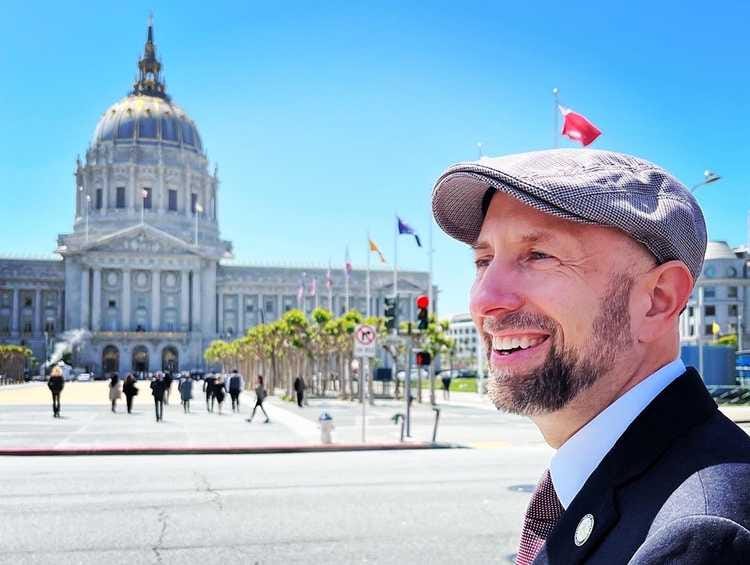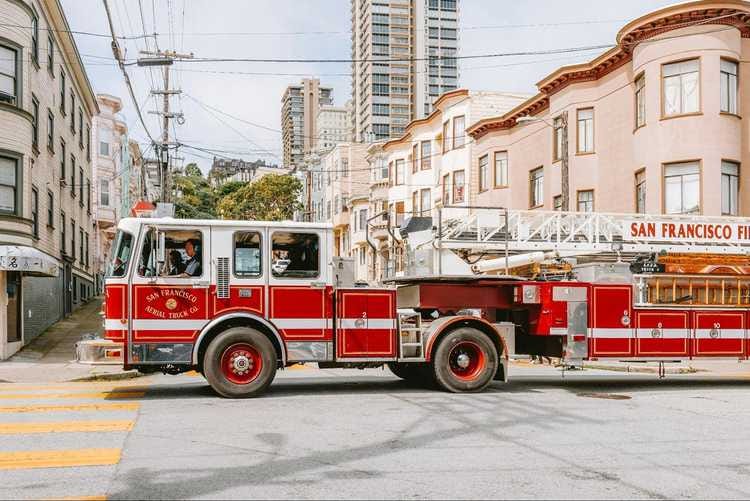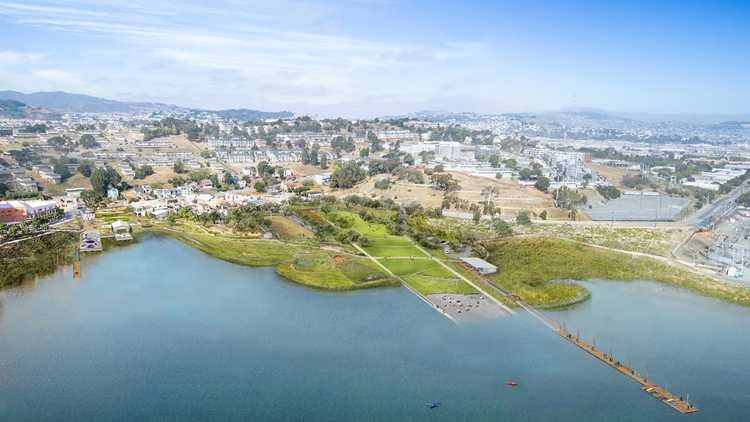New Budget Preserves Services, Cuts 1400 Positions, Closes $817.5M Deficit
PLUS: Engardio Recall Qualifies
What You Need To Know
Here’s what happened around the city for the week of May 25, 2025:
- New Budget Preserves Services, Cuts 1400 Positions, Closes $817.5M Deficit
- Engardio Recall Qualifies
- Public Safety Budget Maintained Amid $782M Deficit
- SF Parks Alliance Funding Paused Amid Financial Scandal
Recent & upcoming openings:
- Cubita brings a bit of Cuba to the Mission
- Niku Steakhouse is back after a fire shut it down for two months
New Budget Preserves Services, Cuts 1400 Positions, Closes $817.5M Deficit
Published May 30, 2025
The Mayor's office has released a new budget proposal that closes a $817.5 million deficit without sacrificing core services. The $15.9 billion budget includes structural cuts, eliminates 1,400 positions (most of them vacant), and sets aside $400 million in reserves to protect against federal and state budget volatility. It will now be reviewed by the Board of Supervisors, who may make some limited changes before it is finalized.
The facts
Mayor Lurie's $15.9 billion budget for FY 2025-26 and 2026-27 closes an $817.5 million deficit without sacrificing core services. To do this, the city is making structural cuts—eliminating over 1,400 positions (most of them vacant), trimming underperforming contracts, and ending the unsustainable practice of using one-time funds for ongoing costs. The proposal also sets aside $400 million in reserves to protect against federal and state budget volatility.
You might ask how cutting vacant positions saves us money, and that's a good question! It's because the city must fund an account to pay for those positions once they are filled, so even an empty seat costs money. By eliminating these positions, the city can stop funding them, and instead use that money to pay for other services.
Budget overview
Public safety funding
Public safety remains fully funded. There are no cuts to sworn officer staffing in the Police or Sheriff’s Departments, and four new dispatcher classes will expand 911 capacity. Legal protections for immigrants and LGBT residents remain in place.
Homelessness & behavioral health
To tackle homelessness and the behavioral health crisis, the budget unlocks $90 million for new interim housing, with support from the $37.5 million Breaking the Cycle Fund. New legislation will allow repurposing of unspent Proposition C funds to meet urgent street-level needs.
Clean streets investment
The budget also protects and expands street cleaning, avoiding service cuts while hiring additional cleaning staff and launching new public-private cleaning efforts across seven neighborhoods. Ambassador programs will be expanded and centralized under a more coordinated model.
Economic recovery initiatives
Economic recovery is another pillar. Mayor Lurie’s proposal funds small business fee waivers, revitalizes vacant storefronts through SF Shines (a new storefront improvement grant program), and establishes a new agency to support arts, culture, and film. Early childhood education funds are safeguarded, and downtown activation events will continue to receive support.
Capital and technology
Finally, the budget makes strategic long-term investments in capital improvements and technology. It allocates $132 million across fire stations, street infrastructure, and shelter facilities, and $50 million for 22 tech projects, including a street outreach tool and a new property tax system.
The context
San Francisco’s budget has ballooned over the past decade—from $9.1 billion in 2012 to $15.9 billion today, adjusted for inflation. That’s a 54% surge in spending, even as the city’s population fell by 45,000 residents since 2019. In fact, San Francisco now spends $12,100 per resident, nearly double the $6,300 average of peer consolidated city-counties like Denver and Philadelphia.
Staffing is part of the story. Since 2012, the city added over 7,000 positions—a 27% increase—even though our population is back to 2012 levels. Today, San Francisco employs 22,000 people in core functions, with average compensation of $205,000, the highest per-resident cost among California cities. Nearly 60% of city employees live outside the city, and one in four work from home two or more days per week.
The budget also reckons with San Francisco’s expanding contract and grant system:
$5.8 billion in active contracts across 10,900 agreements and 4,000 vendors.
$1.6 billion in annual grants—up $1 billion since 2018.
36% of the city’s largest vendors (>$100M contracts) are nonprofits, some with lapsed state certification.
Departments like Public Health and Homelessness have seen some of the sharpest cost increases:
DPH: Grew by $871 million since 2012 to $3.2 billion, driven by 1,200+ new employees and a 39% increase in behavioral health contracts.
HSH: Created in 2016, now at $835 million annually, with funding concentrated in Housing First strategies.
Mayor Lurie's budget takes a sharp turn from these trends by cutting costs, consolidating contracts, and shifting to performance-based funding.
The GrowSF take
San Francisco’s budget is now bigger than 17 U.S. states. For too long, that money has been spent without clear accountability and outcomes have suffered. Mayor Lurie’s budget is a necessary course correction: real cuts, real reserves, and real prioritization of safety, cleanliness, and recovery. We all deserve a safe, clean, and accountable city, and this budget sets the tone for lasting reform.
Engardio Recall Qualifies
Published May 29, 2025
The recall of Supervisor Joel Engardio has officially qualified, with the San Francisco Department of Elections confirming that the campaign submitted enough valid signatures. The recall election is now scheduled for September 16, 2025.
The Facts
The San Francisco Department of Elections certified that 10,523 valid signatures were submitted—surpassing the 9,911 required—triggering a recall election for Supervisor Joel Engardio. The vote is scheduled for September 16, 2025. The recall campaign centers on Engardio’s support for Prop K, the 2022 ballot measure that permanently closed a two-mile stretch of the Upper Great Highway to car traffic. While the measure passed citywide with 54% of the vote, District 4 (which includes the Sunset) rejected it.
The Context
The recall of Joel Engardio is the latest chapter in San Francisco’s long-running battle over the Great Highway—and over who gets to decide neighborhood policy. In 2020, Mayor London Breed closed the Great Highway to cars during the pandemic, transforming it into a temporary park. Residents in the Sunset District, where the highway runs, were divided: some embraced the car-free space, while others decried increased traffic on neighborhood streets.
Under former Supervisor Gordon Mar, a compromise was reached after the COVID lockdown was lifted - the road would be open to cars during the week, but closed on weekends. This arrangement was intended to balance the needs of all residents, and we thought it was a pretty good compromise. But in 2024, Engardio co-sponsored Prop K, which permanently closed the Upper Great Highway to cars, converting it into the Sunset Dunes park. The measure passed citywide with 54% of the vote, but in Engardio's District 4, 64% of voters opposed it.
The GrowSF Take
As we predicted, the recall qualified for the ballot.
This serves as a reminder for all politicians - focus on delivering what your constituents want or you may lose your job. We hope that we can soon return to a functional, collaborative majority on the Board of Supervisors that delivers for San Franciscans, whoever ends up in the District 4 seat.
Public Safety Budget Maintained Amid $782M Deficit
Published May 28, 2025
Despite a projected $782 million budget deficit, Mayor Daniel Lurie’s budget proposal does not cut funding from San Francisco’s core public safety services. The Fire Department, Police Department, Sheriff’s Department, 911 dispatchers, District Attorney’s Office, and Public Defender’s Office will all maintain or slightly increase their funding.
The Facts
In January, Mayor Lurie ordered every city agency to plan for 15% cuts due to a $782M budget deficit. But the Standard reports that theFire Department, Police Department, Sheriff’s Department, 911 dispatchers, District Attorney, and Public Defender will be spared entirely from the budget cuts.
The District Attorney’s Office, which initially faced a $5.4 million reduction, will instead receive about $3.5 million more million for FY 2025–26 and $6.7 million more in FY 2026–27. That change prevents layoffs of junior prosecutors and ensures continued focus on prosecuting fentanyl-related and repeat offenses.
The Public Defender’s Office will also see a small bump—from $55.4 million to $57.6 million in FY 2025–26. This funding will help the department keep up with rising caseloads stemming from stepped-up enforcement.
The Context
San Francisco’s $782 million deficit is the result of years of runaway budget growth, structural inefficiencies, and economic headwinds. Since 2012, the city budget has surged by 54% (inflation-adjusted), adding $5.5 billion and 7,000 new city employees—even as the population shrank by 45,000. Today, San Francisco’s per-resident spending is nearly double that of similar U.S. cities, and the city now forecasts an annual deficit of $1.5 billion by 2030 if left unchecked.
The unique combined city-county structure means San Francisco provides a wider range of services than most cities, including public health and welfare, but also creates redundancy—like operating both a Police Department and a Sheriff’s Office. Meanwhile, departments like Public Health and Homelessness have seen billion-dollar increases, and city spending on contracts and nonprofits has exploded to $5.8 billion.
Mayor Lurie’s decision to spare public safety from cuts reflects a broader strategy: protect what works, rein in what doesn’t, and finally bring discipline to a city government that has grown too big, too fast.
The GrowSF take
San Francisco is finally seeing real progress in crime reduction, with a recent 23 year low in crime, but that leaves us to question - should we be growing or cutting the budget as crime drops? Will raising budgets for public safety actually save the city money overall?
Honestly, we aren't sure. For now, we're ok with a wait-and-see approach that holds budgets for public safety steady, with the possibility for changes if crime continues to fall.
SF Parks Alliance Funding Paused Amid Financial Scandal
Published May 27, 2025
The San Francisco Parks Alliance, a vital partner in improving city parks, is under intense scrutiny and a criminal probe after revelations it misspent millions. Now the Lurie administration has paused all funding to the organization, pending an audit.
The Facts
About $290,000 in funding to the Parks Alliance has been frozen by the Lurie administration pending the results of an audit of the organization's spending practices. This follows reports that the nonprofit Parks Alliance allegedly misused $3.8 million in restricted funds (using them to pay for operational expenses rather than their intended projects), racked up unpaid debts and grants with partner organizations, and awarded bonuses to top executives despite a $4.6 million budget deficit.
The Context
The Parks Alliance, which manages funds for over 80 neighborhood groups and park projects, has been a key player for over 50 years in enhancing San Francisco's public spaces. They raise private funds to help pay for park improvements and events, though parks are primarily funded by the city.
Recent revelations have exposed significant financial mismanagement within the nonprofit. The issues primarily involve the misuse of "restricted funds," or money donated and earmarked for a specific purpose, not for general use by the organization. The misuse includes spending $1.9 million of a $3M donations from the Baker Street Foundation intended for Crane Cove Park. Restricted funds are legally required to be used for their intended purpose, and the Parks Alliance's alleged misuse of these funds has raised the prospect of criminal charges.
The nonprofit's new CEO, Robert Ogilvie, has acknowledged past errors and says he is working to resolve the debt. The city attorney and controller are now conducting a thorough audit.
The GrowSF Take
While we strongly support the mission and essential work of the Parks Alliance, that comes with an expectation that donor funds and public resources will have rigorous financial stewardship. We hope the organization can recover from this scandal, make donors whole, and continue its important work in our parks.
Recent & upcoming openings
A great city is constantly changing and growing, let’s celebrate what’s new!
Cubita brings a bit of Cuba to the Mission

Where: 2516 Mission St, rooftoop
When: Opens Friday, June 6
Do you miss El Techo as much as we do? The oft-windswept rooftop perfect for date night closed about two months ago to be replaced, by the same owners, with Cubita! Opening on Friday, June 6 it will bring cuban drinks and snacks in place of El Techo’s Mexican focus. We’re excited to give it a try!
Niku Steakhouse is back after a fire shut it down for two months

Where: 61 Division
When: Reopened May 30
In late March, a kitchen fire shut down Michelin-starred Niku Steakhouse (thankfully, no one was hurt). Though they temporarily relocated to the Jay hotel, they racked up some big bills for the rebuild. But yesterday they re-opened in their proper home at 61 Division in the Design District. Reservations are being gobbled up fast, so don’t wait (if you don’t mind dropping a lot of cash, that is!).











